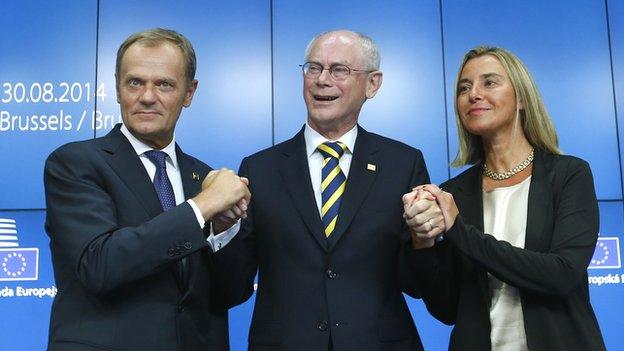Poland aims to thwart Tusk bid for new term as EU leader
- Published
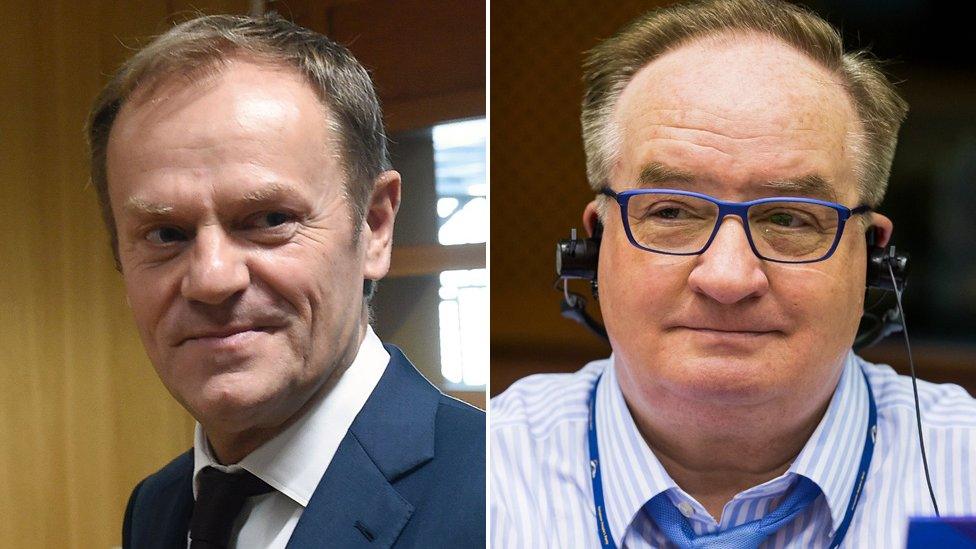
The EU's Donald Tusk (left) is not under much pressure from Polish rival Jacek Saryusz-Wolski
The Polish government has put forward its own candidate to rival Donald Tusk, the EU's Polish leader who is seeking a new 30-month term later this week.
Such national hostility to a fellow countryman is highly unusual in EU politics. But Mr Tusk is still expected to get enough support to keep his post.
As European Council president, Mr Tusk looks set to play a major role in the UK's Brexit negotiations.
A top Tusk ally rejected the candidacy of Polish rival Jacek Saryusz-Wolski.
German MEP Manfred Weber heads the main conservative bloc in the EU, the European People's Party (EPP). He said the EPP would expel Mr Saryusz-Wolski if he did not give up his bid to thwart Mr Tusk.
What does the European Council president do?
The European Council brings together the heads of state and government of the 28 EU member states. Jointly they set the EU's strategic direction in key areas, such as reform of the eurozone, the Greek debt crisis, the migrant challenge and relations with Russia.
The Council president aims to achieve consensus - deploying all his diplomatic skills - on these tricky issues, where national tensions often dictate how leaders behave.
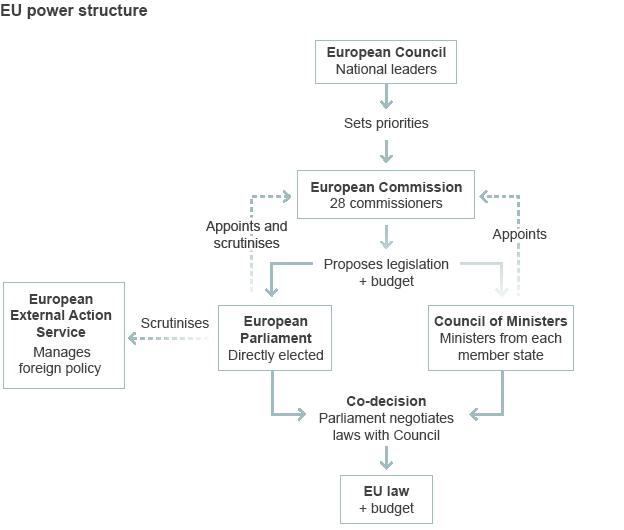
Mr Tusk took charge in late 2014 and his term ends on 31 May. If his fellow leaders back him on Thursday, he will have another 30-month term, lasting until 30 November 2019. That period coincides with the expected two-year Brexit talks on UK withdrawal from the EU.
Malta, currently chairing EU business, is likely to seek approval of Mr Tusk by consensus. Poland's hostility might push it to a vote - but then Mr Tusk is still likely to win by a qualified majority.
Why is the Polish government so hostile to him?
Mr Tusk was Polish prime minister in 2007-2014. As leader of centre-right Civic Platform, his chief rival then was the nationalist Law and Justice Party (PiS), which is now in power.
PiS leader Jaroslaw Kaczynski holds Mr Tusk politically responsible for the 2010 plane crash in Russia which killed his twin Lech Kaczynski, and all other 95 people on board.
The plane crashed in dense fog. Official investigations ruled pilot error was the principal cause.
In 2012, Jaroslaw Kaczynski told Mr Tusk in parliament: "In the political sense you bear 100% responsibility for the catastrophe in Smolensk."
Many Poles believe Mr Tusk's government did not do enough to explain the causes of the crash. Critics say Mr Tusk should not have allowed the Russians to conduct the first crash investigation.
Jaroslaw Kaczynski also said Mr Tusk "favours solutions that are extremely harmful to Poland".
The European Commission has clashed with the PiS government over Poland's refusal to take in refugees - a move that would ease the burden on Greece and Italy. The Commission is also investigating the party's changes to Poland's constitutional court and media, suspecting that they violate EU rule of law principles.
- Published15 November 2016
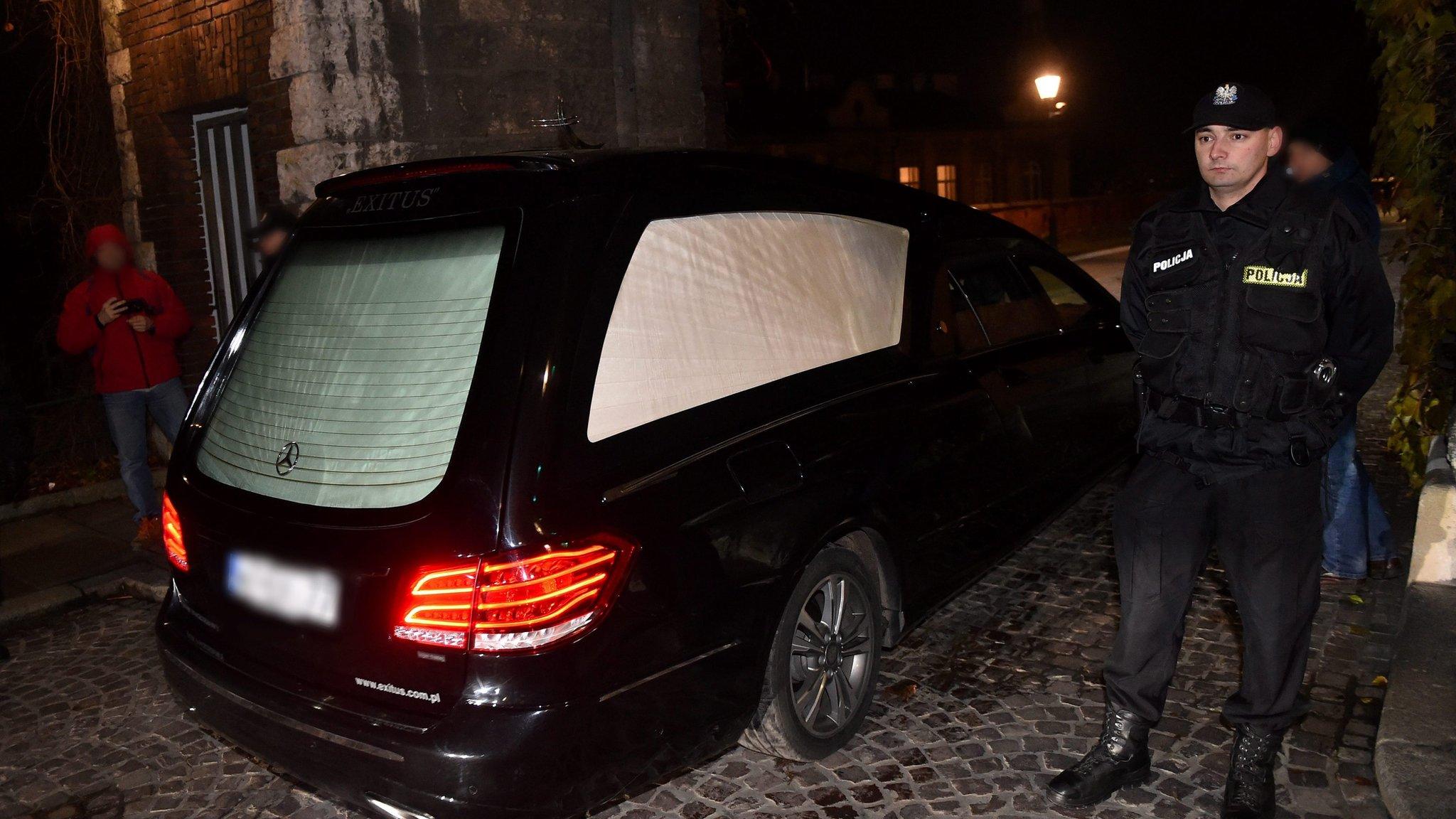
- Published13 October 2016
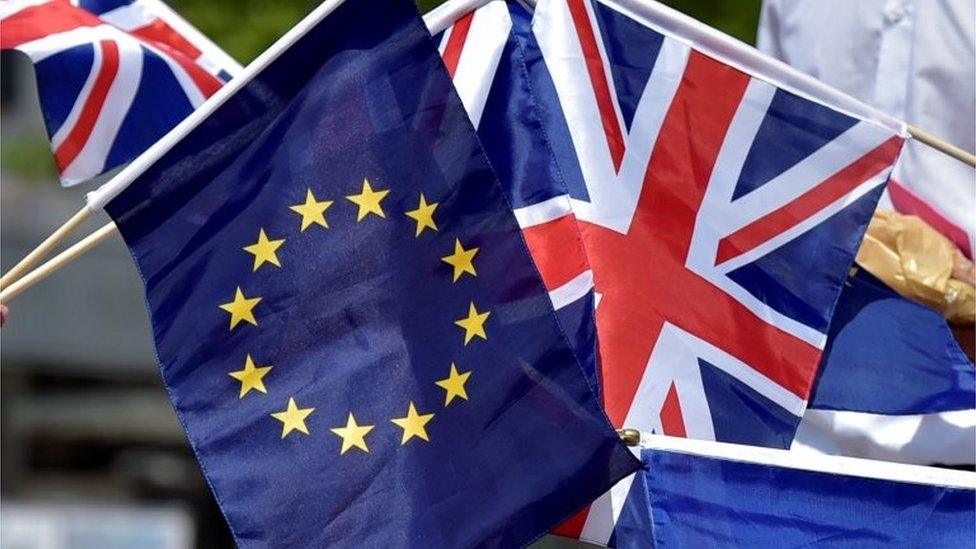
- Published13 January 2016
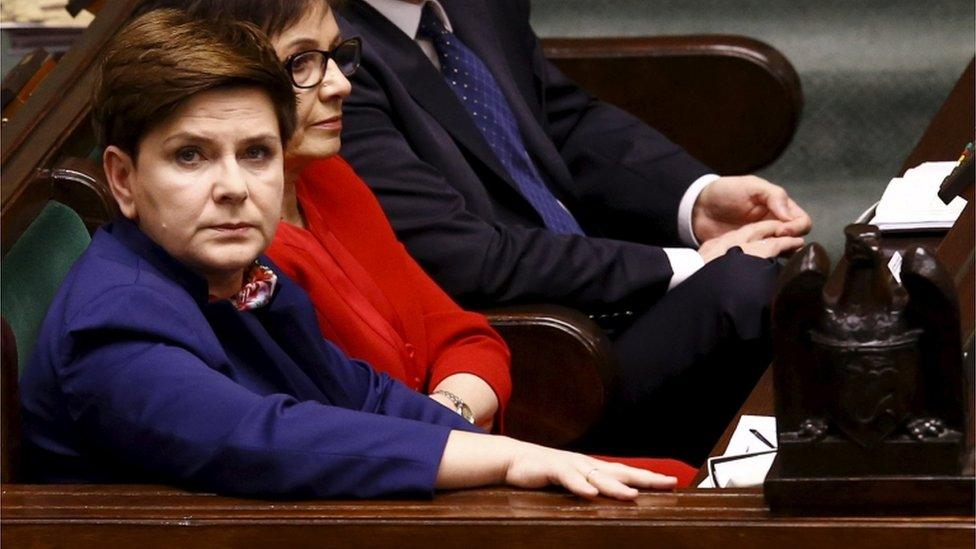
- Published30 August 2014
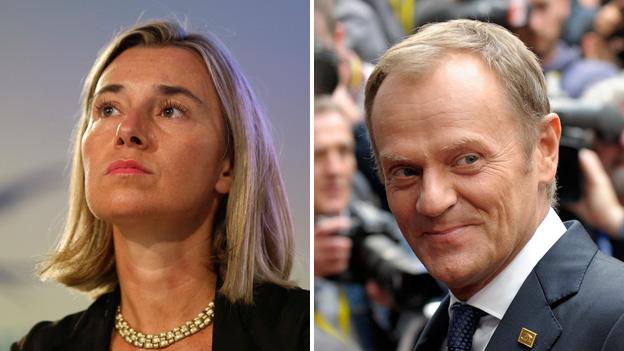
- Published30 August 2014
